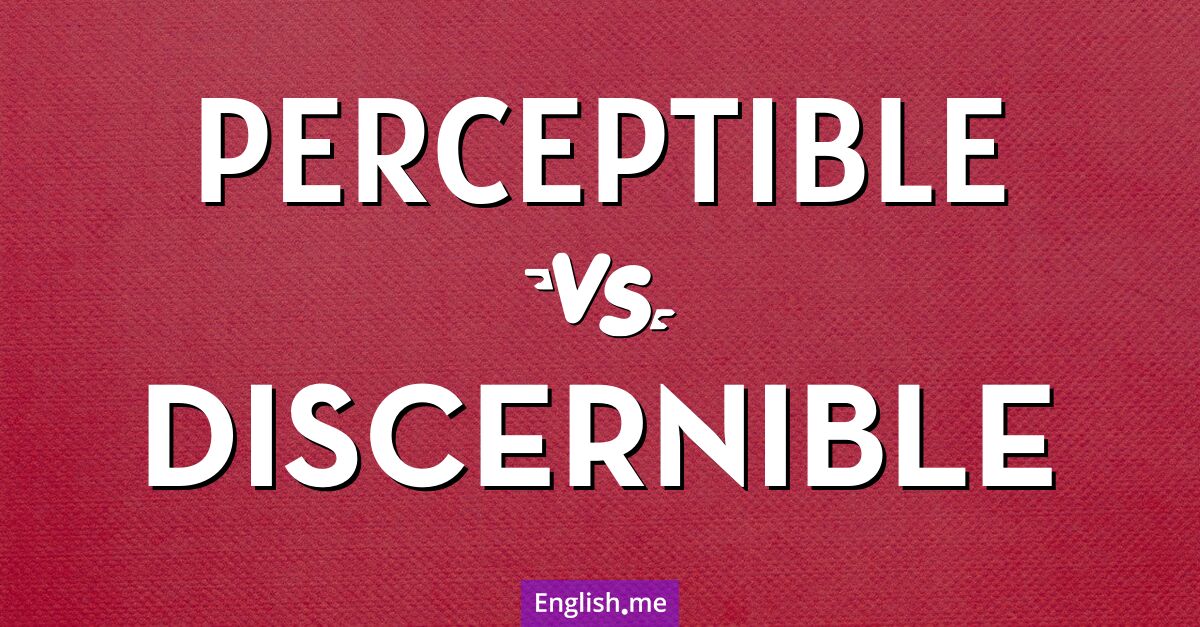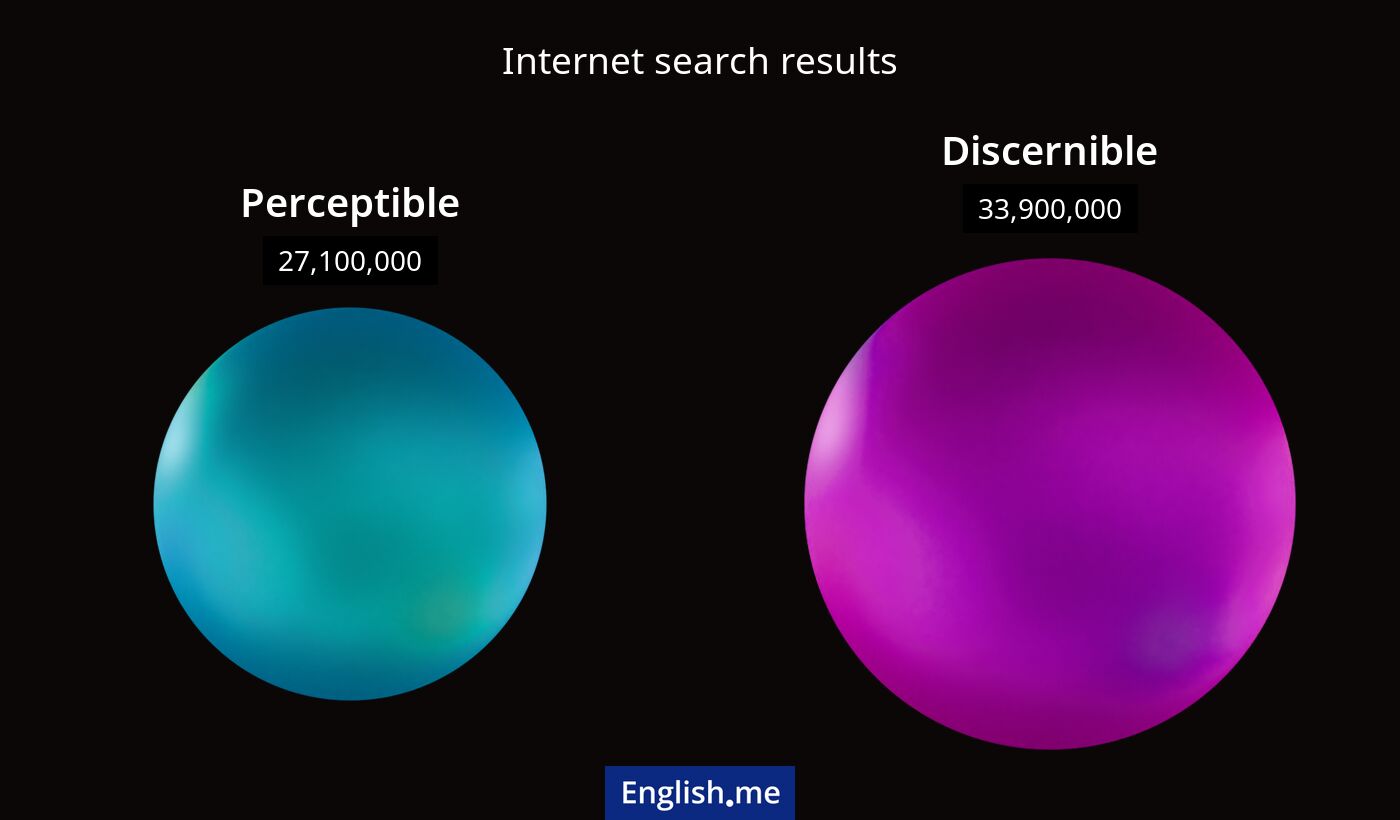"Perceptible" vs. "discernible": spotting the nuances
Reviewed and edited by  Lloyd Cooper 13/12/2024, 10:25
Lloyd Cooper 13/12/2024, 10:25
English.me team member

 What is similar?
What is similar?
Both "perceptible" and "discernible" describe something that can be noticed or detected, either through the senses or the mind. They both refer to the ability to perceive or recognize something.
 What is different?
What is different?
"Perceptible" generally refers to something that can be sensed or felt physically and is directly noticeable to the senses. "Discernible" often implies that something can be detected through careful observation or analysis, possibly requiring more effort or keen perception.
 Which one is more common?
Which one is more common?

 Examples of usage
Examples of usage
Perceptible- There was a perceptible change in his tone.
- The tension in the room was almost perceptible.
- She noticed a perceptible difference in the quality of the fabric.
- The ship was barely discernible in the fog.
- There was no discernible reason for his sudden departure.
- The influence of the new policy is discernible in the company's performance.

 English
English español
español française
française italiano
italiano deutsche
deutsche 日本語
日本語 polski
polski česky
česky svenska
svenska Türkçe
Türkçe Nederlands
Nederlands